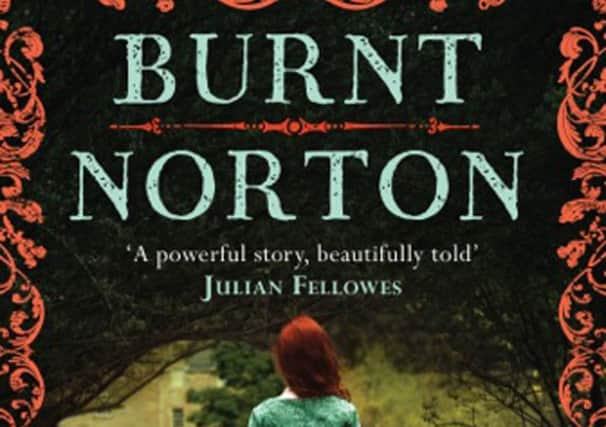Book review: Burnt Norton by Caroline Sandon


Caroline Sandon didn’t have to trawl far through the history of her husband’s family home to discover a real-life tale of seduction, betrayal, jealousy and revenge that would rival some of the best 18th century literary melodramas.
Sandon is married to Conroy Ryder, 8th Earl of Harrowby, whose family bought Burnt Norton, a grand manor house tucked away in the Cotswold countryside near Chipping Campden, in 1753.
Advertisement
Hide AdAdvertisement
Hide AdIt’s an estate which has long been a source of fascination. In 1934, T.S.Eliot stumbled across the neglected gardens of the then unoccupied house and was moved to write the first of his famous Four Quartets poem.
Intrigued by an 18th century account of what was originally Norton House, Sandon set about finding out more about its history. And so outrageously over-the-top is the remarkable story of Burnt Norton that Sandon has been quick to point out that her captivating novel really is based on fact.
Principal player in the drama is wealthy landowner and Warwick MP Sir William Keyt who, on a night in September 1731, took candlesticks from his hall table and set fire to a beautiful new mansion he had built in the grounds, destroying the house and killing himself in the inferno.
Why he did it and the extraordinary journey that led to his greatest achievement becoming his funeral pyre is the driving force for a novel rich in dark history, wild extravagance, base greed and human passion.
Advertisement
Hide AdAdvertisement
Hide AdAs Sir William Keyt, his wife and four children gather outside Norton House in preparation for a trip to London, eldest son and heir Thomas is overcome by a terrible sense of danger. He’s a bookish, sensitive boy who, in his father’s eyes, has always been second best to his spirited younger brother John.
When a wheel comes off their carriage and a horse bolts, John is killed, eldest Lizzie is left paralysed from the waist down and the family is torn apart by grief and despair.
The lives of Thomas and his other sister Dorothy are now narrowed to the walls of their home where the world necessarily revolves around poor Lizzie’s sickbed and every day is ‘a merry-go-round’ of misery.
Keyt, meanwhile, buries himself in his fortune, becomes enamoured with Molly Johnson, the pretty, vivacious daughter of the local pub landlord, and moves her to Norton House as his wife’s lady’s maid.
Advertisement
Hide AdAdvertisement
Hide AdBut his most extravagant project is building a second vast mansion in his grounds, squandering money he does not have on luxury his family does not want.
When Thomas, the son he never really loved, falls for Molly, Keyt is driven mad with lust and jealousy and will do anything to have her...
If events in the past were the impetus for Sandon’s tragic story, they are also at the heart of this absorbing novel which focuses on the unravelling of one man’s ambition and its impact on those left behind.
Sandon takes us beyond known facts to a powerful imagining of the repercussions of a series of disasters which blighted a family’s future happiness and gave a solid but unremarkable country house a haunting legacy.
A fascinating slice of English history…
(Head of Zeus, paperback, £7.99)